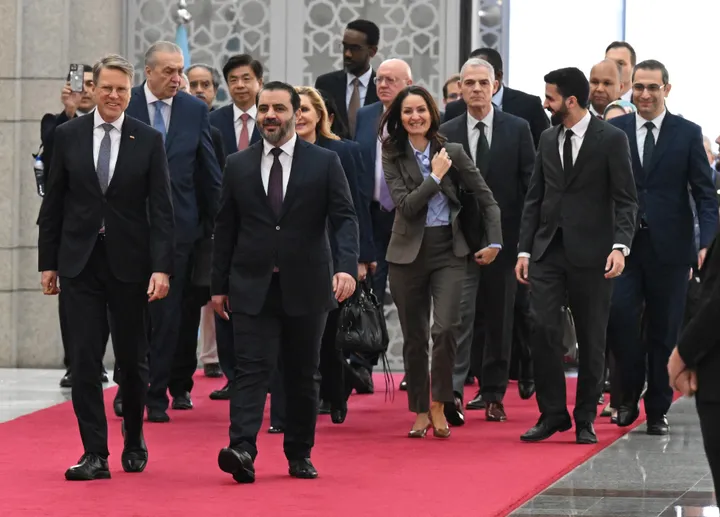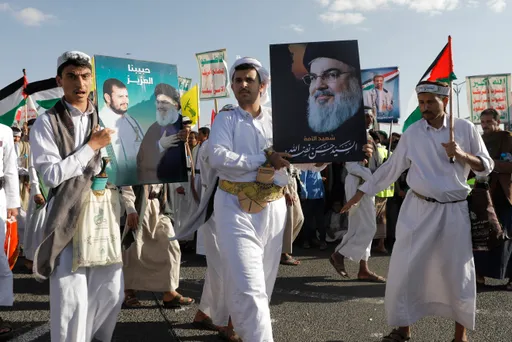The armed attack launched by the Balochistan Liberation Army (BLA) in Karachi - the commercial capital of Pakistan - targeting the Chinese consulate and killing two Pakistani security officers, came at a time when Chinese and Pakistani governments had arrived at the pinnacle of diplomatic bonhomie.
The key highlight of this friendship is a $56 billion China Pakistan Economic Corridor (CPEC) project, a road network which aims to run through Balochistan and connect China's Xinjiang province with Pakistan's Gwadar port.
The BLA has been active since 2000 and is based in both Pakistan and Afghanistan. There are other Baloch separatist groups too. They all accuse Pakistan of exploiting the province’s natural resources against the will of local Balochi population, and considers the highly publicised CPEC as an “imperialist” project.
“The BLA says that China is taking over Balochistan's natural resources. It says that China should leave Balochistan and go back to China. They should not be [working] in Balochistan,” said Asif Farooqi, a Pakistani journalist with BBC Urdu.
As a result, they have been opposing the Chinese investments in Balochistan, attacking the country’s diplomatic mission in Karachi, Farooqi said.
“The objective of this attack is clear: we will not tolerate any Chinese military expansionist endeavours on Baloch soil,” said BLA leader Jihand Baloch, soon after the Karachi attack.
Pakistani journalist Farooqi said it's quite likely that the BLA will conduct more strikes to hurt Chinese interests in Pakistan.
“This is not the first time they attacked Chinese interests. But this is the most significant one because they have targeted the Chinese government directly, [by attacking] its diplomatic mission,” he said.
In April, the BLA militants carried out a suicide attack against Chinese engineers in Balochistan’s Dalbandin district, injuring several of them.
The BLA is recognised as a terrorist organisation by Pakistan and the UK, but not by the US, the EU and India. There are unconfirmed claims that India is tacitly backing the group as a response to Pakistan's support of the UN-sanctioned Right to Self Determination in India-administered Kashmir.
“The Balochi militants don’t normally carry out suicide type attacks. It means this gotten more serious,” said Farooqi.
There are other Baloch armed groups such as the Balochistan Republican Army, but the strength of those groups relies on “whom they are associated with,” he added.
“The BLA seems to have better contacts than other militant communities in Pakistan,” he said.
Pakistan accuses India of supporting the BLA. According to Farooqi, however, Islamabad is yet to provide any evidence that links the BLA to India. “There is no proof for that. But [it’s obvious] someone is supporting them. They are getting all kinds of ammunition, money and people,” he said.
Pakistan’s Prime Minister Imran Khan described the attack as "part of a conspiracy against Pakistan and China's economic and strategic cooperation.”
“However, such incidents will never be able to undermine the Pakistan-China relationship that is mightier than Himalaya and deeper than Arabian sea," Khan said.
For decades, Pakistan has been dealing with various Balochistan-based separatist groups.
The province merged with Pakistan in 1947 after the British left the subcontinent. But some parts of the province rebelled after their princes refused to join.
Since then, Pakistan has used local tribal leaders and the military to control the province, which is close to the Strait of Hormuz, one of the most strategic locations in the world.
The strait is the sole sea passage between the Gulf and the open ocean, makesing control of the province more critical for both Pakistan and China, especially with its ambitious Belt and Road Initiative, which includes CPEC as one of its components, aiming to join China with central Asia.
In May 2017, Chinese President Xi Jinping described the initiative as the “project of the century” with a strong potential to further enhance China's global influence.
























